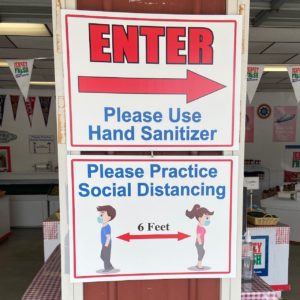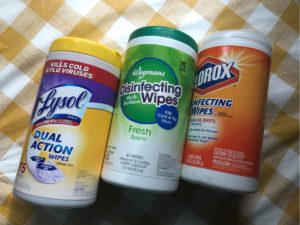As reported at njbiz.com Wednesday morning, NJ Governor Phil Murphy has indicated he will be signing “an executive order mandating that masks or other face coverings be worn outdoors, as the COVID-19 virus surges across the country and the transmission rate creeps up in New Jersey.”
The state currently requires the use of face coverings indoors and at many outdoor businesses, and strongly encourages their use when in crowded public spaces, such as at the beach. The new order will require that masks will have to be worn outdoors when social distancing is not possible.
There are many outdoor operations around the farm. Be sure to plan accordingly with supplies of masks/face coverings for all agricultural workers and harvesters, in addition to planning all field work with adequate space for individuals to keep socially distanced.
For more information on keeping you, your workers and your family safe, be sure to read and implement the recommendations in NJ’s “INTERIM CORONAVIRUS DISEASE 2019 (COVID-19) GUIDANCE FOR MIGRANT AND SEASONAL FARMWORKERS, THEIR EMPLOYERS, AND HOUSING PROVIDERS.”
 Agents Michelle Infante-Casella, Meredith Melendez, William Bamka, Stephen Komar and Wesley Kline to educate famers selling directly to the public about changes occurring to the industry as a result of the COVID-19 pandemic. Four sessions in May were presented with the last session being a farmer panel discussion about changes on farms forced due to the pandemic. Farmers included Tracy Duffield – Duffield’s Farm Market, Dave Specca – Specca You-Pick Farm, and Jess Niederer – Chickadee Creek Organic Farm. In May, 145 participants attended this online series, offered on Tuesday Evenings from 7:00-8:00 PM. All sessions were recorded and are available to view online. The topics included the following:
Agents Michelle Infante-Casella, Meredith Melendez, William Bamka, Stephen Komar and Wesley Kline to educate famers selling directly to the public about changes occurring to the industry as a result of the COVID-19 pandemic. Four sessions in May were presented with the last session being a farmer panel discussion about changes on farms forced due to the pandemic. Farmers included Tracy Duffield – Duffield’s Farm Market, Dave Specca – Specca You-Pick Farm, and Jess Niederer – Chickadee Creek Organic Farm. In May, 145 participants attended this online series, offered on Tuesday Evenings from 7:00-8:00 PM. All sessions were recorded and are available to view online. The topics included the following:
